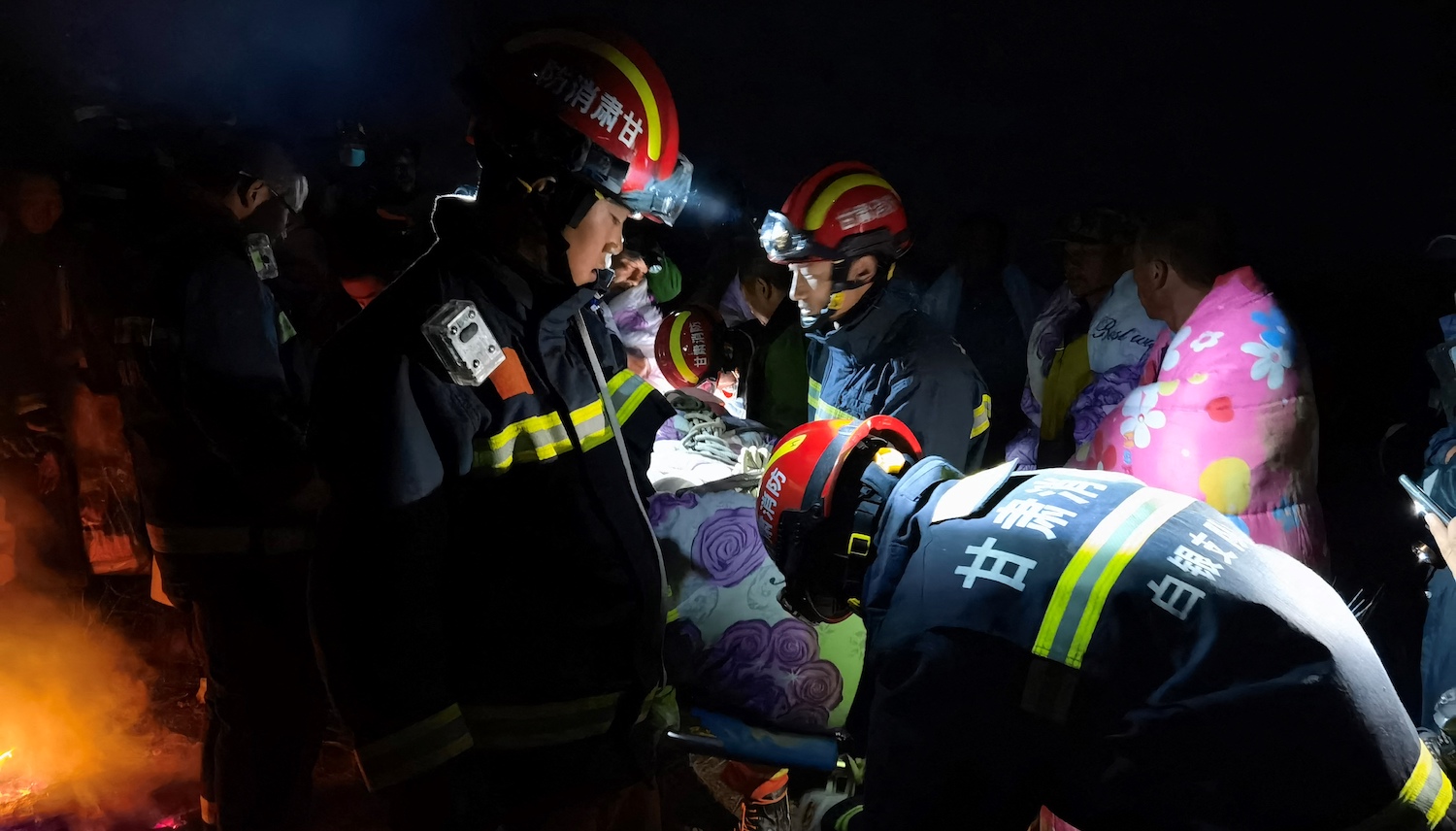A 100-kilometer race in China's Gansu province this past weekend ended in catastrophe when a sudden, violent shift in the weather stranded dozens of participants and led to the deaths of 21 competitors. A group of 172 ultra-runners started the fourth Yellow River Stone Forest Mountain Marathon, which follows a 62-mile course from the city of Baiyin along the Yellow River and up into the mountains. Video from the starting line shows runners setting out clad mostly in shorts and t-shirts—one runner later told Chinese media that he was mostly concerned with heat—and though event organizers erroneously told participants that weather forecasts showed nothing to worry about, conditions deteriorated right when runners were tackling the toughest section of the race.
According to an account from Chinese outlet CGTN, the course had nine checkpoints, and most runners were between Checkpoint 2 (24 kilometers) and Checkpoint 3 (32.5 kilometers) when high winds, freezing rain, and hail struck the mountainous section. The temperature drop happened suddenly and caught everyone off guard, with one runner telling the press that he passed out just four minutes after starting to feel numb. Many chose to turn back, some pressed on, and several of those who did reported being unable to move without being blown over by the ferocious winds. "At that time, I couldn't see the way down the mountain," Li Pengcheng, a pseudonymous runner, told Chinese news outlet Xinhua. "Many runners were lying on the side of the track. Some of them might have died."
Zhang Xiaotao said he was part of a group of six runners battling the wind, though he passed out while trying to press on. Zhang woke up in a cave next to a fire after being rescued by a shepherd; he was the only one of his group to survive.
The 172 runners who started the race were an elite bunch, some of the best and most adventurous people to get into the sport amid China's running boom. Participants had to prove they'd already finished another ultra before being allowed to sign up, and organizers enforced age minimum and maximum requirements. Two highly accomplished runners were among the dead. Liang Jing was an accomplished ultramarathoner who'd won each of the three previous installments of the race, several other ultramarathons in China, and finished second twice at the Vibram Hong Kong 100. The organizers of that race characterized him as "one of the best ultra-endurance athletes in the world." Huang Guanjun, one of the runners who grouped up with Zhang, won a gold medal at China’s 2019 National Paralympic Games in the men’s marathon for hearing-impaired runners.
Organizers launched a rescue effort shortly after calling the race off at 2:00 p.m. local time, five hours after it began. One group of 18 runners managed to get a distress message out and was quickly rescued, but the inhospitable terrain made the search very difficult. The mountainous area where most of the runners were trapped was not accessible by large vehicles, so around 1,200 rescuers were mobilized. Authorities used thermal cameras and helicopters, and by 9:00 p.m. Sunday night, all 172 runners were accounted for.
Baiyin Mayor Zhang Xuchen, who kicked off the race on Saturday, apologized on behalf of race organizers. "As the event organizer, we are in deep regret and remorse," he said. "We apologize to the families of the victims and injured [athletes] and our condolences go to you." Zhang also promised a full investigation, which might as well start with asking why race organizers ignored a gale warning from a nearby weather station.
The New York Times reports that some media outlets have blamed the runners for not being more prepared. One runner who didn't participate but knew several of the deceased said that accusation is bunk. "Someone criticized the runners, who are the victims, for having not prepared enough," experienced trail runner Yun Yanqiao said. "But it should be the responsibility of the organizers to inform the runners of the risks and tell them how best to prepare."






